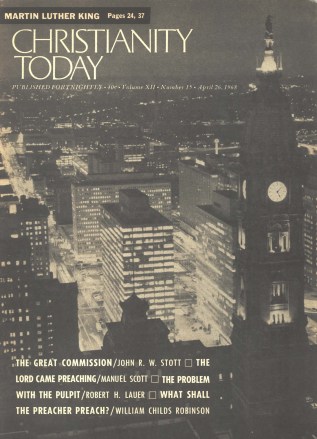Time and again in our century the frontier demands for a relevant theology have been met by nonevangelical religious theories whose paralysis soon betrays their subtheological irrelevance. A theology so up to date that it boggles like the Boogaloo won’t survive as long as the Black Bottom.
Among the more recent victims has been Bultmannian existentialism. A theory that sought modern acceptance for Christianity by demythologizing the Bible, existentializing God’s revelation, and dehistoricizing the Gospel deserved an early death. Such gnosis can be kept afloat only by a steady stream of doctoral candidates in theology, and these religious lifeguards soon become so infatuated with their own mirages that they neglect the rescue of other men’s fantasies.
Our generation has been deprived of the truth of the Bible so long that a new opportunity now exists to present the fresh accents of the New Testament message as something novel and unique. Perhaps man is so much a stranger to the Gospel that in the twentieth century it can once again confront him with first-century newness.
God doesn’t need to talk like Woody Woodbury or wear a miniskirt to get mass exposure in 1968. All he has to do is to be himself; sooner or later twentieth-century man will either come to terms or run for cover.










